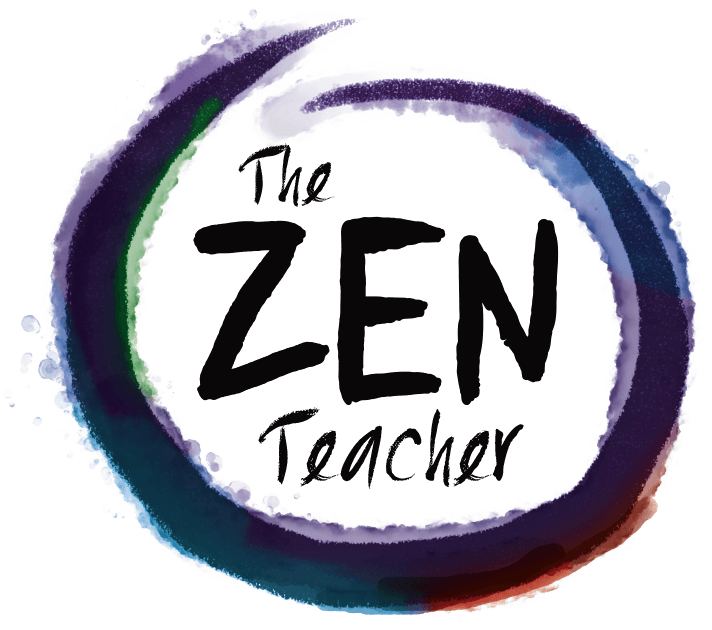
One day a wife came in and saw her husband sitting in the La-Z-Boy recliner.
“What are you doing?” she asked.
“Nothing,” he said.
“You did that yesterday,” she replied.
“I know,” the husband said. “But I wasn’t done.”
***
I recently had a discussion with a friend of mine about the difference between doing nothing and doing nothing.
Let me explain.
A friend of mine–who is one of the most Zen-like, Zen teachers I know–was lamenting about how even when she feels she is doing nothing, that she can’t quite bring her self to do absolutely nothing. This means if she is reading for pleasure, say, she’s still thinking how she has to be done by 5 p.m. to get to another appointment, or what she’s going to make for dinner, or even how many pages she has left of the book. I beat myself up, she said, for not being able to let go and just do nothing at all.
In talking to her, I realized that there are two kinds of doing nothing. One is when we say we are doing nothing, but what we really mean is that we are simply not currently working on our primary obligations, like our day job or our children or our family or our house. Our culture has made us feel that if we are not working on those things, we are doing “nothing.”
That perspective, however, makes it easy for us to believe (and for others to label us) as “a lazybones” or “a loafer.” In fact, we are probably merely just participating in a hobby that helps us decompress from whatever our primary obligations are. And let me go out on a limb here, and say that certainly we all deserve a break from those obligations once in awhile.
There is also doing absolutely nothing. But what does that mean? Like nothing at all? Like just sitting there and breathing, but nothing else? Yes. That’s exactly what it means. And we don’t do it nearly enough. In fact, short of those who practiced meditation*, I couldn’t think of a single person I knew who really spent any time participating in that level of nothing-ness. And yet, it was an intriguing idea (and, I decided, a worthy personal challenge).
But after further reflection and discussion with my friend, I found myself getting angry. I realized that we have our language around “doing nothing” all wrong–especially in regard to the first type. When we finally give ourselves permission to read for pleasure or ride our bike or work out or quilt or sing or whatever that thing is that we love and can’t quite ever find the time for, and someone says, “What are you doing?”, we are inclined to answer, “Nothing.”
But it’s not “nothing.”
Nothing implies that what we’re doing is not accomplishing anything. That it has no value. That is worthless. And this is how we choose to describe that activity or behavior that fulfills us, recharges us, rejuvenates and renews us? This is not only sad, it’s incorrect. And in doing so, we are negating the very thing we may need to help us de-stress and decompress.
The problem is that it becomes super easy to start to think of those things that fill up our tank as “nothing.” We figure they are things that we should only get to if we have exhausted every single other responsibility, obligation, and goal on our to-do lists. This is, of course, ridiculous because there’s always something more on the list.
This process can also make us question why we would spend so much time doing something that is “worthless” or “without value.” We fail to recognize the significance and profundity of the impact doing that activity can have on our self-care, well-being, and mental health. It’s these very activities that I refer to as your “Zen Practice.” Often the benefits of these endeavors are incalculable, light years away from being “nothing.”
Another reason this approach is dangerous is because if people ask us what we’re doing and we say nothing, they can easily assume that we’re free to interrupt, to redirect us into new activities or obligations, or to ask us for favors or requests. When that happens, the motivation of our friends and family can be quite innocent, but the results can be insidious. It can quite simply rob us of opportunities for our personal fulfillment and renewal. I’m certainly not suggesting that we not help people or be there for them, but I am imploring us to protect and guard those moments when we need downtime and rejuvenation. In other words, it’s okay to set boundaries around those activities that others might consider (and we might also label) as “nothing.”
The irony is that we need to make a conscious, intentional, and determined choice to include these “nothings” into our life more often, not less.
So choose to participate in activities that rejuvenate you and call them nothing if you want.
And please sometimes, through the transcendence of silence, prayer, and/or meditation, take the time to do absolutely nothing (and yes, purists will argue, somewhat justifiably, that praying and meditating is still doing a thing).
But mostly, I want you to think about the inspirational poster I once saw.
It went like this:
“When you ask me what I’m doing and I say I’m doing nothing, that doesn’t mean I’m free.
That means I’m doing nothing.”
And doing nothing–however YOU define it–is okay. TZT
*and let me say right now, for the record, my friends and acquaintances with regular meditation practices are some of the most relaxed and centered people I know.
